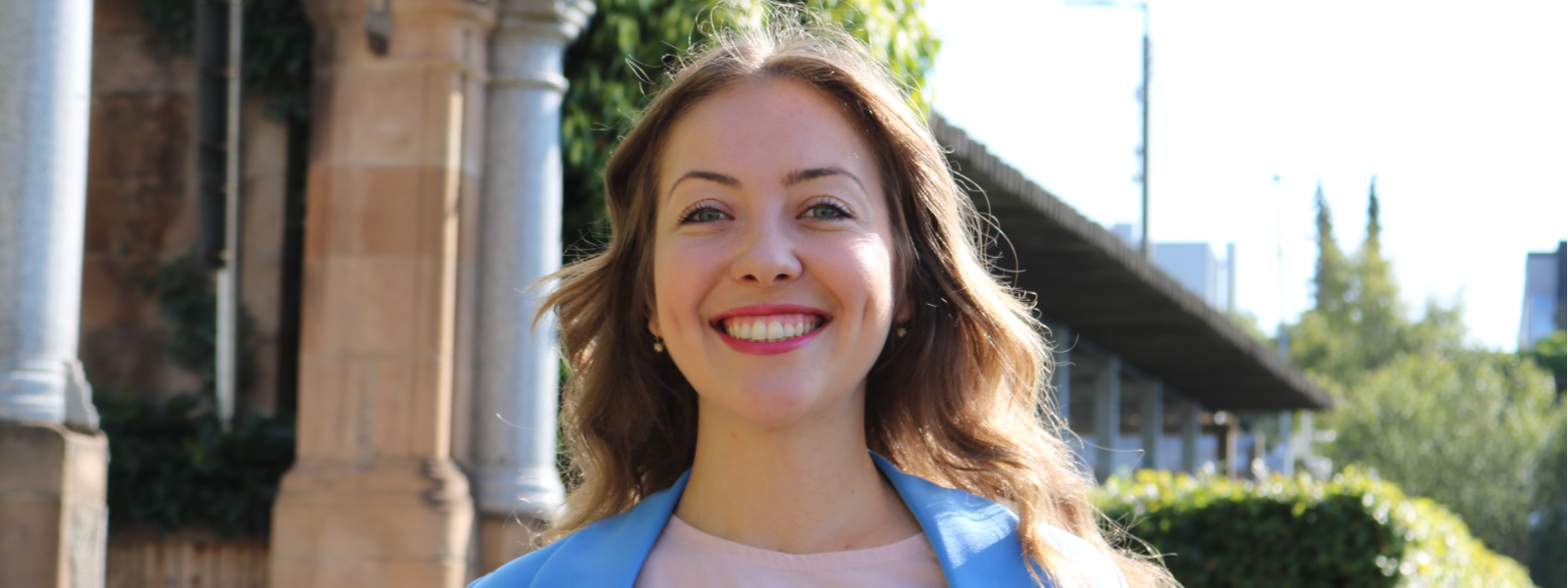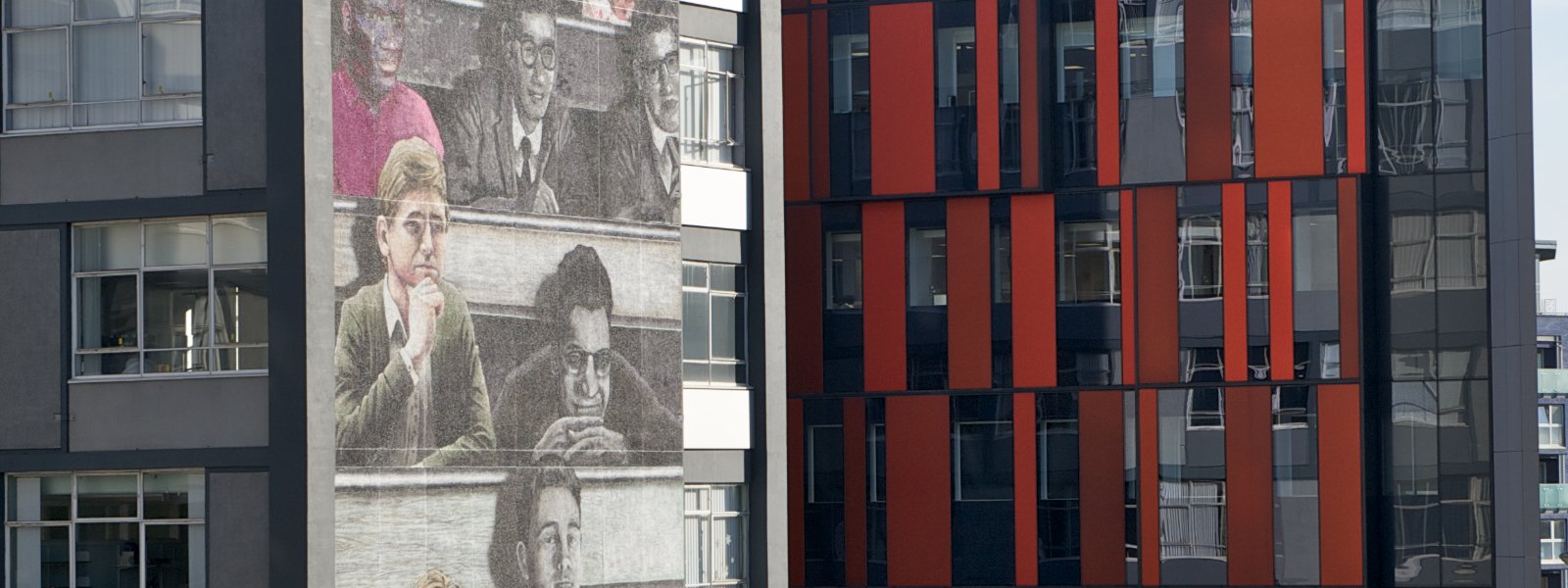
Vanya, from Bulgaria, is a student on the MLitt Media & Communication within Strathclyde's Department of Humanities
Tell us a little bit about your background...
My name is Vanya Georgieva, and I am 27 years old from Bulgaria. I lived in Scotland for nearly seven years until March this year, when I moved back home after completing my Master’s degree in MLitt Media & Communication at the University of Strathclyde, Glasgow. Pursuing higher education was my primary reason for moving to Scotland.
I earned my first degree, an MA in Politics and International Relations, at the University of Aberdeen. After finishing it, I took a gap year to reflect on what I wanted to study for my Master’s. While researching Scottish universities, something about Strathclyde University stood out to me. I explored the various Master’s programs, particularly in the Humanities and Social Sciences department.
Initially, I assumed I would continue with something closely related to Politics, such as Diplomacy or International Security. However, when I came across the Media and Communication program, my perspective shifted. I saw it as a broader opportunity to complement my first degree, especially given the strong political focus within the topics discussed in class.
What drew you towards undertaking a Masters degree?
I have always aspired to pursue a Master’s degree. Academia has always been a passion of mine, and I never doubted that I would continue my education. Additionally, I come from a family where several members hold advanced degrees, which further inspired me to follow this path.
A Master’s degree offers a level of specialization that a Bachelor’s degree doesn’t, allowing you to focus on your career goals and develop expertise in your chosen field. For me, it was particularly rewarding to combine my two degrees in a way that they complement each other. This interdisciplinary approach has broadened my career prospects while maintaining a connection between the fields of Politics and Media.
Tell us about the format of the programme. What was a typical week like?
A typical week was quite intense—nothing like the flexibility I experienced during my Bachelor’s studies. While you can choose your seminar times and days to some extent, the workload and pace are significantly higher.
Each semester, I took three subjects: four compulsory courses and two electives in total. The study load was demanding, as expected from a program ranked 1st in the UK for Communication and Media Studies. It required strong time management and commitment, but the learning experience was highly enriching.
Tell us a little bit about your dissertation topic...
My dissertation focused on the relationship between media and politics in Bulgaria’s turbulent political landscape, particularly in the context of the Russo-Ukrainian war. Specifically, I analyzed how Bulgarian media covers political actors and parties with differing opinions, assessing whether the coverage is neutral and balanced.
To conduct my research, I performed a critical discourse analysis of several leading newspapers, examining their approach to reporting on this topic. The process was challenging but incredibly insightful, offering me a deeper understanding of how media shapes public perception in politically charged environments.
What was the academic support at Strathclyde like?
The University of Strathclyde offers extensive academic support across all aspects of student life. I had the privilege of working with a team of exceptional professors who were not only experts in their fields but also highly approachable and supportive. They consistently went above and beyond to address any questions or concerns I had.
In addition to the faculty’s guidance, the university provides a wide range of resources to aid students, including study skills workshops, dedicated advisors, and comprehensive library services. These resources were invaluable in enhancing my academic experience and ensuring I stayed on track throughout my studies.
What are your hopes for the future?
Inspired by my dissertation topic, my aspirations lie at the intersection of politics and media. I hope to contribute to a more informed, inclusive, and transparent society.
In politics, I envision greater transparency and accountability, with decision-making processes that are open and trustworthy. I also hope to see a more diverse political landscape, where all communities are represented and heard.
For the media, I aspire to see it become a stronger force for good by prioritizing fact-based reporting and combating misinformation. I believe digital platforms can be harnessed to empower citizens, foster constructive dialogue, and encourage political engagement. Ultimately, I hope to see politics and media work together to address global challenges through international cooperation and mutual understanding.
On a more personal note, I’ve had the privilege of working with Dr. Petya Eckler on an impactful project dedicated to raising awareness about eating disorders. Our mission is to spread accurate information about these disorders, provide credible resources for those seeking help, and share best practices from established organizations both in the UK and internationally. By collaborating with these organizations, we aim to adapt and apply their successful approaches in Bulgaria. I am optimistic about the future of this initiative and excited about the opportunity to make a meaningful difference in the lives of many people.#
What advice would you give to someone considering applying to the MLitt Media & Communication?
Go for it! The program is an incredible experience that can open many doors for your career. You will have the opportunity to work with outstanding professors who are approachable, supportive, and eager to help you succeed. The courses are intellectually enriching and will equip you with valuable skills that can be applied across various fields. If you’re passionate about Media and Communication, this program offers both a challenging and rewarding journey that’s well worth undertaking.
